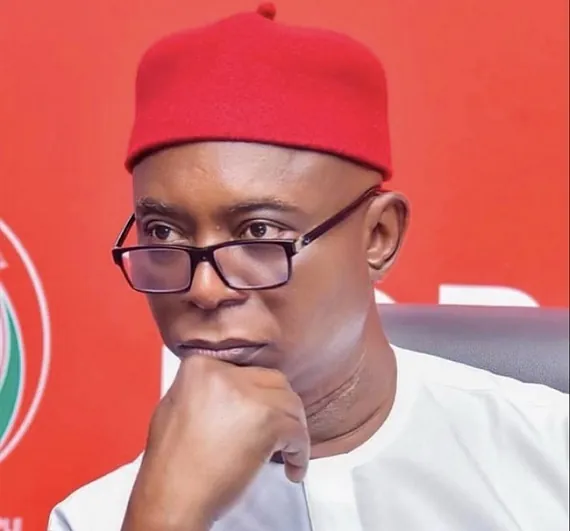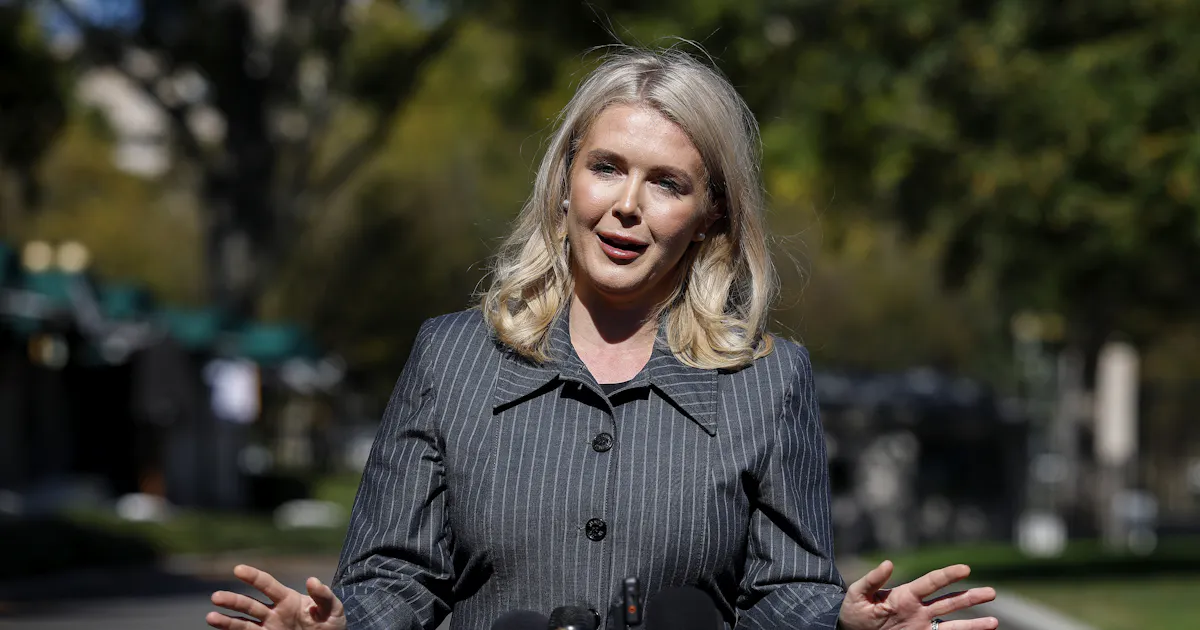Copyright tribuneonlineng

Aduragbemi Euba is known for her dynamic leadership and strong advocacy for youth and women empowerment. She ran for the office of governor of Oyo State under the Young Progressives Party (YPP) in 2023. In this interview with YETUNDE AJANAKU, Euba speaks about balancing creativity with governance, women’s leadership, youth empowerment, and her vision for a more accountable Nigeria. NIGERIA’S fashion and entertainment industries are growing but still face structural challenges. What do you think needs to change for these sectors to truly thrive? The only constant thing in life is change. Nigerian designers must understand that as the world evolves daily, our concepts, strategies, and operations must match global demands. The world doesn’t wait for talkers; it moves with doers who can speak its language. If you stay updated and relevant, you won’t struggle. But no matter how creative or intelligent you are, without systems and structures in place, you’ll find it difficult to grow. Structure sustains success. Many Nigerians feel disconnected from governance and political leadership. How can we rebuild public trust in the system? The trust deficit comes from years of failed promises and politics without a human face. The way forward is through accountability and genuine service. When people realize they have the power to start and end a government, politicians will start taking them seriously. Also, we must discourage vote-selling. Citizens should understand that selling their votes is selling their power. Education remains one of Nigeria’s biggest challenges. As someone who runs a school, what reforms do you think are most urgent in the education sector? First, our syllabus is outdated. It doesn’t reflect modern realities, and that’s dangerous for our future. We must upgrade the curriculum to meet digital and global standards. Second, our teacher training system needs reform. The NCE should not be a third option after B.Sc. or HND. We must attract intelligent, passionate teachers. Check the quality of graduates today; can we truly say we’re proud? We need to fix the roots if we want to produce competent future leaders. You wear many hats, entrepreneur, fashion designer, and politician. How do you balance creativity with leadership and governance? I don’t struggle to do anything because of the avalanche of God’s grace and the good people around me. I’ve also learned when and how to prioritize. Beyond politics, fashion, and entrepreneurship, I am a hands-on family woman. I pay attention to what matters per time, and honestly, God gave me the gift of good people who help make things run smoothly. Through your foundation and mentorship initiatives, you’ve worked with many young women. What do you see as the biggest barriers limiting women’s leadership in Nigeria today? There are many, but let’s highlight a few. First, being female is not a qualification; it’s simply a description. We must stop acting from a place of pity. Leadership positions should be earned based on capacity, competence, and character, not gender. Secondly, mindset is a major issue. Many women struggle with envy, rivalry, and unnecessary competition. Women are sometimes their own biggest obstacles in leadership. We need to support one another, and those already in power must lead with humility and inclusion. You contested the governorship election under the Young Progressives Party in 2023. What lessons did that experience teach you about Nigeria’s political system and youth participation? Running under YPP was a huge learning curve. From securing the party’s ticket to engaging INEC officials and other candidates, I learned that being a gubernatorial candidate is more of a mental task than a physical one. You have to be many things to many people. Our political system needs a total overhaul. We must raise wise and people-focused leaders. As for the youth, they must realize they own this nation. Until young people speak with one voice and actively participate in elections, they’ll remain sidelined in governance. You founded a football academy, a rare initiative for a female leader in Oyo State. What role do you think sports can play in youth empowerment and community development? The SBA Football Academy currently has about 100 young people, both male and female. That means 100 families have hope, and 100 youths are off the streets. Sports is a powerful tool for unity and discipline. As someone passionate about the next generation, I run the academy free of charge. It’s my way of investing in the future. Unemployment continues to rise despite Nigeria’s large youth population. From your perspective as an entrepreneur, what practical steps can bridge the gap between skills and opportunities? Nigerian youths are not lazy; our environment simply stifles creativity. We keep producing graduates into an economy that cannot absorb them. The question is, are we teaching what’s useful for the future? We must encourage youth-centered investment. Government, parents, and organizations need to do better. Let’s focus on relevant skills, innovation, and entrepreneurship. That’s how we bridge the gap between knowledge and opportunity. How can Nigerian women in business and politics support one another instead of competing in silos? Support competence. Find women with strong track records and stand by them. Let’s stop backbiting and criticizing each other. Our journeys are different, and that’s okay. When women unite beyond petty differences, we amplify our collective strength. You’ve invested in mentoring young female leaders through LeadHership by SBA. What values do you believe are missing in today’s leadership culture? A lot, self-awareness, integrity, mentorship, and financial independence, among others. Many young leaders also struggle with low self-esteem and a lack of identity. Through LeadHership by SBA, we are addressing these issues one by one. Leadership starts from within. Once you understand who you are, your values become your compass. With the current economic challenges in Nigeria, what do you think the private sector and government can do together to drive growth and innovation? The government must realize that you can’t tax poverty. Politics doesn’t grow the economy — entrepreneurship does. Every nation that moved from third-world to first-world status did so by supporting small and medium enterprises (SMEs). We need policies that encourage startups, not stifle them. I actually have a proposal I’m willing to share with the federal government when invited — focused on empowering SMEs for real growth. The issue of brain drain is alarming, with many young Nigerians relocating abroad. How can we make the country more attractive for its own talents to stay and thrive? I see “japa” differently. I don’t see brain drain; I see human export. Nigerians abroad are thriving and contributing to the economy through remittances. If we structure this movement properly, it could be a game-changer. The government should engage the diaspora intentionally. Their knowledge, resources, and networks can help rebuild the nation, if properly harnessed. You’ve been involved in philanthropy and child welfare. What more can government and NGOs do to protect children with disabilities and those in rural areas? There must be enforceable policies protecting vulnerable people, just like we have for basic education. People living with disabilities and children in rural areas need real inclusion, not sympathy. Also, those whom God has blessed must understand that life is a privilege. The more we lift others, the better society becomes. Government, NGOs, and individuals must collaborate to ensure that no child is left behind. As someone who has achieved success both locally and internationally, what lessons can Nigeria learn from other countries in nurturing creativity and entrepreneurship? First, the Nigerian government must publicly identify with SMEs. The planned 2026 tax reform is a step forward, but we must remember we are still the poverty capital of the world. All we ask for is basic: security, healthcare, good roads, and a fair standard of living. I’ve travelled widely, and many Nigerians abroad want to return home. But what are they returning to — insecurity and inconsistent policies? We must harness our youthful population and their energy before it’s too late. That’s where our nation’s true wealth lies. If you could speak directly to young Nigerians, especially young women, about hope, leadership, and resilience in today’s Nigeria, what would you tell them? Don’t just exist — live! Don’t just grow old, grow up. Don’t age in numbers, age in wisdom. Remember, knowledge is “know” plus “edge.” Once you know, you have an edge, seek knowledge, believe in Nigeria’s unity, and work with others to build the nation of our dreams. And to my fellow women: live beyond sentiments. Don’t aim to just be “the wife of the best” aim to be the best.



